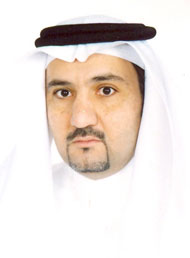RIYADH, 5 January 2006 — With the volume of sales at around SR3 billion annually, Saudi Arabia accounts for around 40 percent of the fast food market in the Gulf states estimated at SR6 billion-SR7 billion.
Samer M. Al-Khawashki, general manager of Burger King Middle East Restaurant Service Center for Saudi Arabia and the UAE, told Arab News that the fast food market in the region has been growing annually at six to eight percent during the last five years.
A developer and a franchisee of Burger King Corp., the fast food chain is owned and managed in the Kingdom by Olayan Food Services Co. and by Fast Food Services in the UAE, both belonging to the Olayan Group, which holds the franchise in the region.
“There are around 2,000 branded fast food restaurants in the region, excluding the Arabic/local restaurants. However, the market is now beginning to settle down after a period of aggressive growth followed by restructuring of the market,” said Al-Khawashki, a veteran in the field with 12 years’ experience.
During this period some brands opted out of the market due to the fierce competition which they couldn’t stand against major international players.
As a result of the shakedown, only the fittest have survived to forge ahead through business process reengineering and creative marketing skills.
Providing an overview of the market, he said the fast food business in the Gulf states is segmented, with the hamburger/sandwich line accounting for 40 percent of the business. The pizza and chicken segment constitutes the remaining 60 percent of the fast food pie.
Pointing out that expansion is the name of the game in the FF business, Al-Khawashki said their company, a member of the Olayan Group, is planning an aggressive expansion program to increase the number of outlets in the region over the next five years.
“Our market share in the hamburger/sandwich segment stands at 18 percent in the region. However, it is nine percent if the fast food market is taken as a whole. Our target is to enhance our market share in the hamburger/sandwich segment from 18 to 23 percent in the next five years,” the general manager said. To this end, they will continue with the two-pronged approach of boosting in-store sales as well as the network of outlets.
In terms of expanding the in-store business, a key element of the management strategy would be to combine the ongoing training program with a package of incentives for the employees, of whom Saudis comprise 15 to 20 percent of the total work force. However, those not up to the mark would be put on notice.
Asked about the Saudi employees’ tenure of service, he said it was a variable factor given the nature of the fast food business and the free-wheeling employment market in the Kingdom. Saudis, with no contractual obligations to stay put with the BK chain, do make forays in greener pastures. Even so, the duration of service remains fairly high among Saudis.
In response to a question on the ingredients used in the menu, Al-Khawashki said that while the accent in all their preparations is on taste, the health aspect has not been glossed over. “BK is a pioneer in fire-grilling and, as a part of our Have It Your Way philosophy, we offer a wide choice of products including lighter options such as salads and light Chicken Whopper,” he adds.


